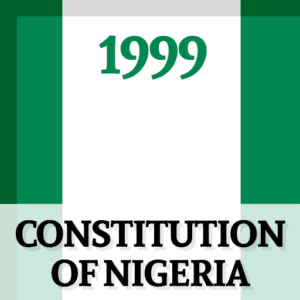Why Tinubu must appoint Ministers now to retain investors confidence
Of the many factors that chase investors from a business space, uncertainty as touching policy directions are deal breakers. Investors care about return on investments on their funding and any factor that would hinder the constant flow of revenue is considered a threat that must get done away with.
Over the past few weeks, as stakeholders and industry experts have applauded the recent economic decisions taken by the President Bola Ahmed Tinubu-led administration, investors are still very much concerned on the composition of the President’s cabinet.
Barely a day to the expiration of the 60-day provision (on Thursday) by the constitution for the President to submit names of ministerial nominees to the Senate for screening and confirmation, President Bola Tinubu is yet to fulfil this constitutional provision. This setback is creating the feeling in the minds of citizens whether Mr. President is ready for governance or wants to toy the same way as his predecessor, Muhammadu Buhari did.
Tinubu who took over to pilot the leadership of this country had spelt out that his ministerial nominees list would be ready in a few weeks since inauguration on May 29th, 2023 but the reverse is the case as Nigerians who are eager to see who becomes Minister wait endlessly. The President has until July 28 to send his ministerial nominees to the Senate for screening and subsequent confirmation in line with the 1999 Constitution as amended.
Following the amendment by the last parliament, the constitution stipulates that the President and governors have, from the date they are sworn in, a 60-day window within which to appoint ministers and commissioners.
The Section 42 of the constitution states that “(a) the nomination of any person to the office of a Minister for confirmation by the Senate shall be done within sixty days after the date the President has taken the oath of office; (b) not less than ten per cent of persons appointed as Ministers shall be women: Provided that the President may appoint a Minister at any other time during his tenure and such appointment shall be subject to confirmation by the Senate.”
This current attitude poses to Nigerians a negative omen – whether the President who cannot equip his engine room within two months is ready to govern the country effectively. What will be the next step to be taken by the National Assembly if Tinubu fails to submit the names of the Ministerial nominees by Thursday? Perhaps, the law will take its course.
It should be noted though that the Senate has declared that President Bola Tinubu will make available the much-expected list of ministerial nominees within the next 48 hours, adding that the President had gone into hiding to avoid undue influence.
The Senate also urged Nigerians to pray for Tinubu to be able to make the right decision within the next 24 hours so that Nigerians will be happy with the list of his ministers at the end of the day.
According to the Senate, the list will be received in the next 24 hours, and that the President decided to go into hiding for the next 48 hours to enable him come up with a list of nominees that would be acceptable to all Nigerians.
The Senate Leader, Senator Opeyemi Bamidele (APC, Ekiti Central) at his 60th birthday anniversary lecture and presentation of two books on Leadership, Communication at the Yar’Adua Centre, Abuja confessed on Tuesday, “Let me tell you, and you must encourage me; I need to make myself unavailable for the next 48 hours because a correspondence must come to the Senate, a very crucial correspondence. So Mr President prayed for me. We should tell the rest of Nigerians to pray for me to be able to make the right decision within the next 24 hours so that when Nigerians hear the list of his ministers, they will say ‘yes…this is uncommon,’ and join us to pray for Mr President.”
Interestedly, while the ministers and commissioners hold their positions at the pleasure of their principals, the cabinet is a constitutional creation and is designed to assist the president and the governors with advice, coordination and policy direction. The role of ministers and commissioners and the conditions they must fulfil are specified in sections 144 to 150 and Sections 189 to 195 of the 1999 Constitution of the Federal Republic of Nigeria.
Though still within the limit prescribed by the constitution, Tinubu has now been in office for 42 days. He can choose to exhaust the 60-day deadline. But he scores no extra points for doing so. Rather, if he chooses to run down the clock, he chips away from the remarkable sense of urgency that he has demonstrated on other fronts since his inauguration. Such early dissonance doesn’t serve him well.
Of Tinubu’s four predecessors, President Olusegun Obasanjo holds the best record. It took Obasanjo just six days to submit the names of his ministerial nominees in his first term and 25 days during his second term. Talk of a man who meant business. President Umaru Yar’Adua, 59 days. President Goodluck Jonathan, 30 days; President Buhari took the rear as he did not send his list of nominees until Day 124 of his first term. In the middle of the pack are: Buhari during his second term, 54 days; It is important to bear in mind that Tinubu’s predecessors didn’t have a constitutional deadline to contend with.
Understandably, the Presidents will need some time in assembling their ministerial nominees. They need time for consultations with critical stakeholders across the states (as the ministers actually represent the states); time for some of the nominees to duly notify their employers, tender their resignations and tidy their affairs; time for the parliament to be inaugurated and be ready for the confirmation hearings; and time for security screening to be concluded. But all of these can be fast-tracked. Besides, Tinubu had three full months between being declared president and being sworn-in. That’s enough time to touch all bases and to put a solid list together.
Nigerians are eager to see the kind of people that will make it to his cabinet. The calibre, antecedents and character of the people the president appoints will help critical stakeholders to decide whether to take the Tinubu administration seriously or not on its reform agenda, and the kind of support they should consider offering. Some of these people have a big say in decisions around investment and other strategic supports, and they have little attention span. Nigeria is not the only country on their radar.
More importantly, Nigeria is at a critical pass. There is a lot to be done in many areas beyond just announcements and symbolic actions. There is no time to waste. The earlier those who will do the heavy lifting of policy formulation, coordination and implementation are in place, the better for the administration and for the country. This is why it wasn’t an extravagant hope or meddling to expect that the President would have used the opportunity offered by the recess of the Senate and the Eid holidays to finalise his list of ministerial nominees. He, unfortunately, missed that window prolonging the suspense and leaving the room open for endless lobbying and jostling. This is a needless distraction, given the enormity of the work at hand. Tinubu should save himself and the country some time.
The country is already pregnant with the issue of skyrocketed inflation, instability in power supply, hike in transportation costs occasioned by the fuel subsidy.
At this critical period the President must sit tight to present a calibre of persons that will be solution driven and technocrats who will stir the country to achieve economic fortunes.




